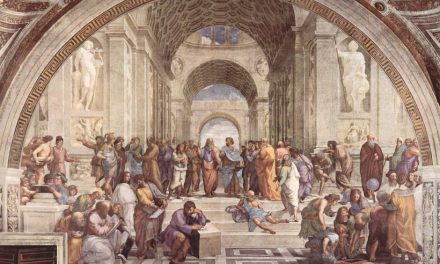Table of Contents
- Introduction
- The Early Years: Exploring Winston Churchill’s Childhood and Education
- Churchill’s Political Journey: From Member of Parliament to Prime Minister
- Leadership during World War II: Churchill’s Role in Leading Britain to Victory
- Legacy and Impact: Examining Churchill’s Influence on Modern Leadership
- Q&A
- Conclusion
“A Lesson in Leadership: Unveiling the Extraordinary Life and Career of Winston Churchill”
Introduction
Winston Churchill, a prominent figure in British history, was a renowned statesman, writer, and orator. His life and career were marked by his exceptional leadership skills, which played a crucial role in shaping the course of World War II and the post-war era. Churchill’s unwavering determination, strategic thinking, and ability to inspire and unite people made him one of the most influential leaders of the 20th century. This article delves into the life and career of Winston Churchill, highlighting his leadership qualities and the lessons we can learn from his remarkable journey.
The Early Years: Exploring Winston Churchill’s Childhood and Education

A Lesson in Leadership: The Life and Career of Winston Churchill
The Early Years: Exploring Winston Churchill’s Childhood and Education
Winston Churchill, one of the most influential leaders of the 20th century, was born on November 30, 1874, in Blenheim Palace, Oxfordshire, England. From an early age, Churchill displayed a strong sense of determination and ambition, traits that would shape his future as a leader.
Churchill’s childhood was marked by privilege and a strong family legacy. His father, Lord Randolph Churchill, was a prominent politician, and his mother, Jennie Jerome, came from a wealthy American family. Growing up in such an environment, Churchill was exposed to politics and leadership from a young age.
Despite his privileged upbringing, Churchill faced challenges in his early years. He struggled academically, particularly in subjects such as Latin and mathematics. However, he excelled in history and English, showing a keen interest in literature and writing. This early passion for language would later become a hallmark of his leadership style.
Churchill’s education played a crucial role in shaping his character and leadership abilities. He attended several prestigious schools, including Harrow School and the Royal Military College at Sandhurst. At Harrow, Churchill’s teachers recognized his potential and encouraged him to pursue a career in politics. It was during his time at Sandhurst that Churchill developed a strong sense of discipline and a deep respect for the military.
In 1895, at the age of 21, Churchill embarked on his first foray into politics, running as a Conservative candidate for Oldham in the general election. Although he lost the election, this experience laid the foundation for his future political career. It was during this time that Churchill began to develop his public speaking skills, captivating audiences with his eloquence and charisma.
Churchill’s early years were also marked by his experiences as a war correspondent. He covered conflicts in Cuba, India, and Sudan, gaining firsthand knowledge of the realities of war. These experiences not only shaped his understanding of military strategy but also deepened his empathy for those affected by conflict.
In 1900, Churchill was elected to the House of Commons as a member of the Conservative Party. His early years in Parliament were marked by his outspoken nature and willingness to challenge the status quo. He quickly gained a reputation as a maverick, unafraid to voice his opinions and stand up for what he believed in.
Throughout his early career, Churchill faced both triumphs and setbacks. He held various ministerial positions, including President of the Board of Trade and Home Secretary, but also experienced political defeats and periods of isolation. However, it was during these challenging times that Churchill’s leadership skills truly shone through. He remained resilient and determined, always striving to make a positive impact on the world.
In conclusion, Winston Churchill’s early years were characterized by privilege, challenges, and a strong sense of ambition. His childhood and education laid the foundation for his future as a leader, instilling in him a sense of discipline, a passion for language, and a deep understanding of the military. Despite setbacks and political defeats, Churchill’s determination and resilience propelled him forward, ultimately shaping him into one of the greatest leaders of the 20th century.
Churchill’s Political Journey: From Member of Parliament to Prime Minister
Winston Churchill is widely regarded as one of the greatest leaders in history. His political journey, from being a Member of Parliament to becoming the Prime Minister of the United Kingdom, is a testament to his exceptional leadership skills and unwavering determination.
Churchill’s political career began in 1900 when he was elected as a Member of Parliament for Oldham. He quickly made a name for himself as a skilled orator and a passionate advocate for social reform. His early years in Parliament were marked by his strong support for free trade and his opposition to imperialism.
As World War I broke out in 1914, Churchill’s leadership abilities were put to the test. He was appointed as the First Lord of the Admiralty, responsible for overseeing the Royal Navy. Churchill’s strategic thinking and innovative ideas played a crucial role in the British war effort. However, his ambitious plans, such as the disastrous Gallipoli campaign, led to criticism and ultimately his resignation from the government.
Despite this setback, Churchill’s determination and resilience propelled him forward. In the 1920s, he served in various ministerial positions, including Chancellor of the Exchequer. During this time, he advocated for economic reforms and worked to stabilize the British economy. His strong leadership and ability to navigate through challenging times earned him respect and admiration from his colleagues.
As the threat of Nazi Germany loomed in the 1930s, Churchill’s warnings about the dangers of appeasement fell on deaf ears. However, his unwavering belief in the need to confront Hitler and his commitment to defending democracy never wavered. When war finally broke out in 1939, Churchill was once again called upon to lead.
In May 1940, Churchill became the Prime Minister of the United Kingdom. His leadership during World War II is legendary. He inspired the British people with his powerful speeches and rallied them to stand firm against the Nazi onslaught. Churchill’s ability to make tough decisions and his unwavering resolve to never surrender became the defining characteristics of his leadership.
Under Churchill’s leadership, the British people endured the Blitz, the Battle of Britain, and the hardships of war. His strategic thinking and ability to forge alliances with other nations, such as the United States and the Soviet Union, were instrumental in the ultimate victory over Nazi Germany.
After the war, Churchill’s leadership continued to shape the world. He played a key role in the formation of the United Nations and the establishment of the North Atlantic Treaty Organization (NATO). His vision for a united Europe, outlined in his famous Zurich speech in 1946, laid the groundwork for the European Union.
Throughout his political journey, Churchill demonstrated the qualities of a true leader. His ability to inspire, his unwavering determination, and his strategic thinking set him apart. Churchill’s legacy as a leader is a testament to the power of strong leadership in times of crisis.
In conclusion, Winston Churchill’s political journey from Member of Parliament to Prime Minister is a remarkable example of leadership. His ability to navigate through challenging times, make tough decisions, and inspire others set him apart as one of the greatest leaders in history. Churchill’s legacy continues to inspire leaders around the world, reminding us of the importance of strong leadership in times of crisis.
Leadership during World War II: Churchill’s Role in Leading Britain to Victory
Leadership during World War II: Churchill’s Role in Leading Britain to Victory
Winston Churchill, a name synonymous with leadership and resilience, played a pivotal role in leading Britain to victory during World War II. As the Prime Minister of the United Kingdom from 1940 to 1945, Churchill’s unwavering determination and strategic decision-making proved instrumental in guiding his nation through one of the darkest periods in history.
When Churchill assumed office in May 1940, Britain was facing an imminent threat from Nazi Germany. The German forces had already conquered several European countries and were poised to launch an invasion of Britain. In the face of this grave danger, Churchill rallied the British people with his famous speech, declaring, “We shall fight on the beaches, we shall fight on the landing grounds, we shall fight in the fields and in the streets, we shall fight in the hills; we shall never surrender.”
Churchill’s ability to inspire and motivate the British people was a key factor in their resilience and determination to resist the German onslaught. He understood the importance of maintaining morale and unity, and his speeches became a source of hope and strength for the nation. Through his powerful oratory skills, Churchill instilled a sense of national pride and unwavering resolve in the face of adversity.
In addition to his inspirational leadership, Churchill also demonstrated exceptional strategic thinking and decision-making abilities. He recognized the need for a strong alliance with the United States and forged a close relationship with President Franklin D. Roosevelt. This alliance proved crucial in securing vital military and economic support for Britain throughout the war.
Churchill also played a pivotal role in shaping military strategy. He understood the importance of air superiority and invested heavily in the Royal Air Force (RAF). The Battle of Britain, fought primarily in the skies over southern England, was a turning point in the war. Churchill’s decision to prioritize the defense of Britain against German air attacks proved successful, and the RAF emerged victorious, preventing a German invasion.
Furthermore, Churchill’s leadership extended beyond military strategy. He recognized the importance of maintaining the morale and well-being of the civilian population. Despite the hardships faced by the British people, Churchill implemented policies to ensure their welfare, such as rationing and the establishment of shelters during air raids. His ability to empathize with the struggles of the common people and provide them with a sense of security further solidified his position as a beloved leader.
Churchill’s leadership during World War II was not without its challenges and setbacks. The early years of the war were marked by a series of defeats and setbacks for the Allies. However, Churchill’s unwavering resolve and refusal to accept defeat played a crucial role in turning the tide of the war. He famously stated, “Success is not final, failure is not fatal: It is the courage to continue that counts.”
In conclusion, Winston Churchill’s leadership during World War II was characterized by his ability to inspire, strategize, and empathize. His unwavering determination and strategic decision-making were instrumental in leading Britain to victory. Churchill’s speeches and actions united the British people and instilled in them a sense of resilience and determination. His alliance with the United States and prioritization of air superiority were key factors in securing victory. Despite the challenges faced, Churchill’s leadership proved pivotal in guiding Britain through one of the darkest periods in history.
Legacy and Impact: Examining Churchill’s Influence on Modern Leadership
Winston Churchill, a name synonymous with leadership and resilience, left an indelible mark on the world. His legacy and impact on modern leadership are undeniable, as he navigated through some of the most challenging times in history with unwavering determination and a steadfast commitment to his principles.
Churchill’s leadership style was characterized by his ability to inspire and motivate others. He possessed a unique talent for rallying the masses, using his powerful oratory skills to instill hope and confidence in the face of adversity. His famous speeches, such as the “We Shall Fight on the Beaches” address, served as a rallying cry for the British people during World War II, reminding them of their strength and resilience.
One of the key aspects of Churchill’s leadership was his ability to make tough decisions. He was not afraid to take risks and was willing to make unpopular choices if he believed they were in the best interest of his country. This was evident in his decision to continue fighting against Nazi Germany, even when the odds seemed insurmountable. His unwavering resolve and refusal to surrender became a symbol of defiance and inspired others to persevere in the face of adversity.
Churchill’s leadership was also characterized by his ability to adapt and learn from his mistakes. He was not immune to failure, but he never let it define him. Instead, he used his failures as opportunities for growth and improvement. This resilience and ability to bounce back from setbacks are qualities that modern leaders can learn from and emulate.
Furthermore, Churchill’s leadership was marked by his ability to build and maintain strong relationships with his allies. He understood the importance of collaboration and unity in achieving common goals. His close relationship with U.S. President Franklin D. Roosevelt was instrumental in securing American support during World War II. Churchill’s ability to foster strong alliances and work effectively with others is a testament to his diplomatic skills and his understanding of the power of cooperation.
Churchill’s impact on modern leadership extends beyond his wartime achievements. His leadership principles and strategies continue to be studied and applied in various fields. His emphasis on clear communication, strategic thinking, and the importance of moral courage are timeless lessons that can be applied to any leadership role.
In addition, Churchill’s legacy can be seen in the way leaders today approach challenges and crises. His ability to remain calm and composed under pressure, his unwavering belief in the power of the human spirit, and his commitment to democratic values are all qualities that continue to inspire leaders around the world.
In conclusion, Winston Churchill’s life and career serve as a valuable lesson in leadership. His ability to inspire, make tough decisions, adapt, build relationships, and learn from failure have left an indelible mark on modern leadership. His legacy and impact continue to shape the way leaders approach challenges and crises, reminding us of the power of resilience, determination, and unwavering commitment to one’s principles. Churchill’s leadership is a shining example of what can be achieved when one possesses the courage to lead with conviction and the vision to inspire others.
Q&A
1. Who was Winston Churchill?
Winston Churchill was a British statesman and politician who served as the Prime Minister of the United Kingdom during World War II.
2. What were some key events in Churchill’s life and career?
Some key events in Churchill’s life and career include his leadership during World War II, his role in the formation of the United Nations, and his tenure as Prime Minister of the UK from 1940 to 1945 and again from 1951 to 1955.
3. What were some of Churchill’s leadership qualities?
Churchill was known for his strong and charismatic leadership style. He was a skilled orator, had a strong sense of determination, and was able to inspire and rally people during times of crisis. He was also known for his strategic thinking and ability to make tough decisions.
4. What is Churchill’s legacy?
Churchill’s legacy is that of a great leader who played a crucial role in the defeat of Nazi Germany during World War II. He is remembered for his unwavering resolve, his powerful speeches, and his commitment to democracy and freedom. He is widely regarded as one of the greatest statesmen in British history.
Conclusion
In conclusion, Winston Churchill’s life and career serve as a valuable lesson in leadership. His unwavering determination, strategic thinking, and ability to inspire others played a crucial role in navigating through challenging times, such as World War II. Churchill’s leadership style, characterized by his strong communication skills and resilience, continues to be admired and studied by leaders around the world. His legacy serves as a reminder of the importance of strong leadership in times of crisis and the impact it can have on shaping history.




